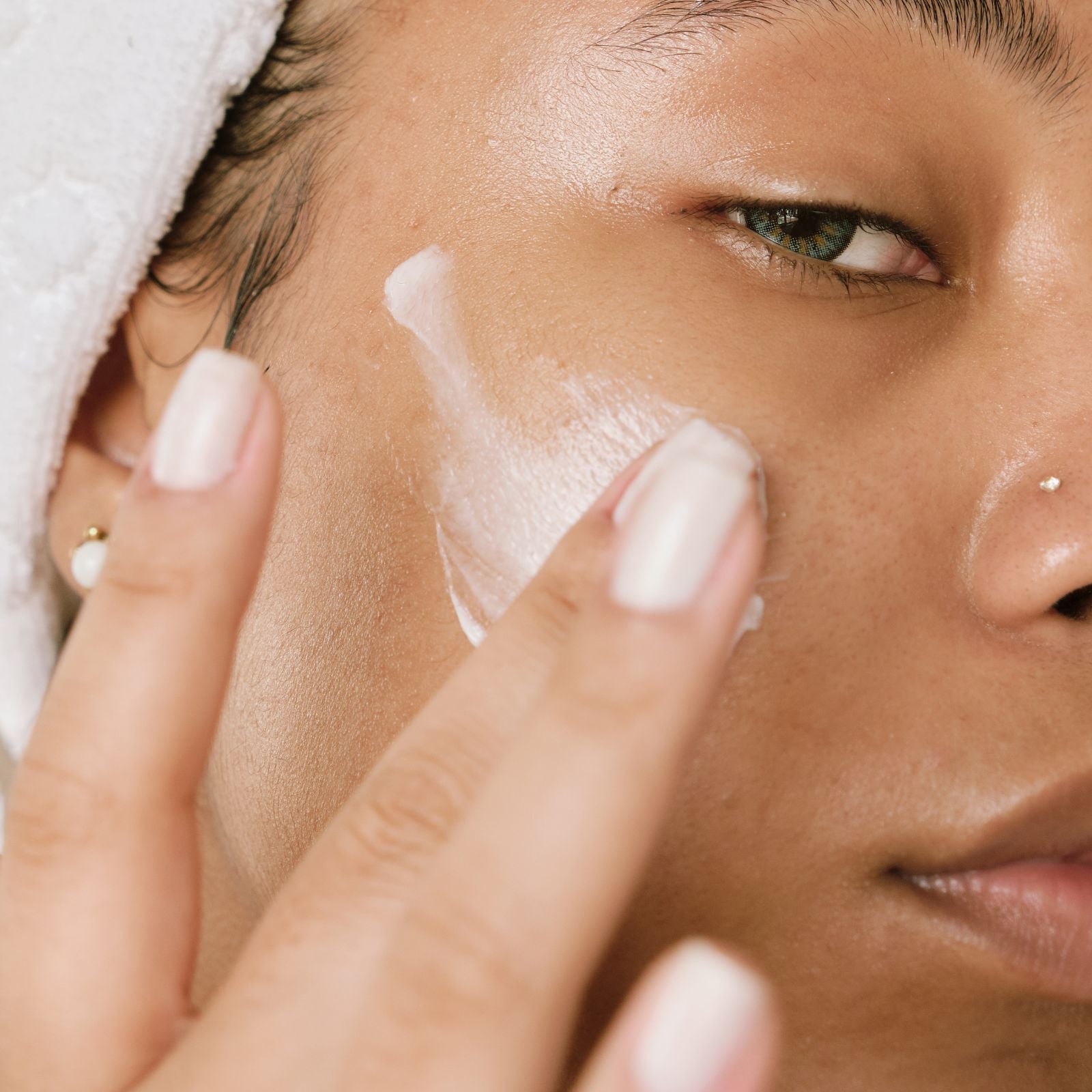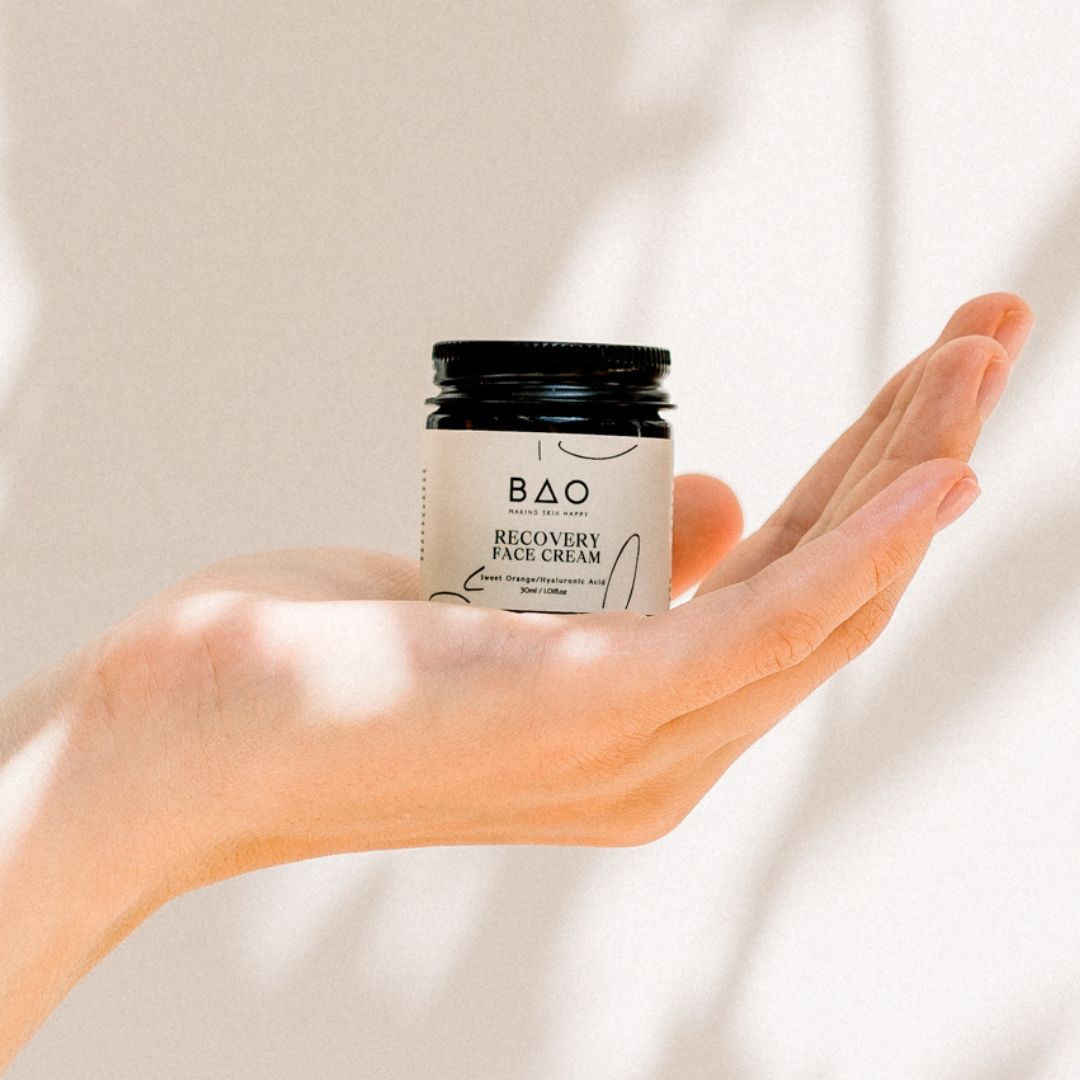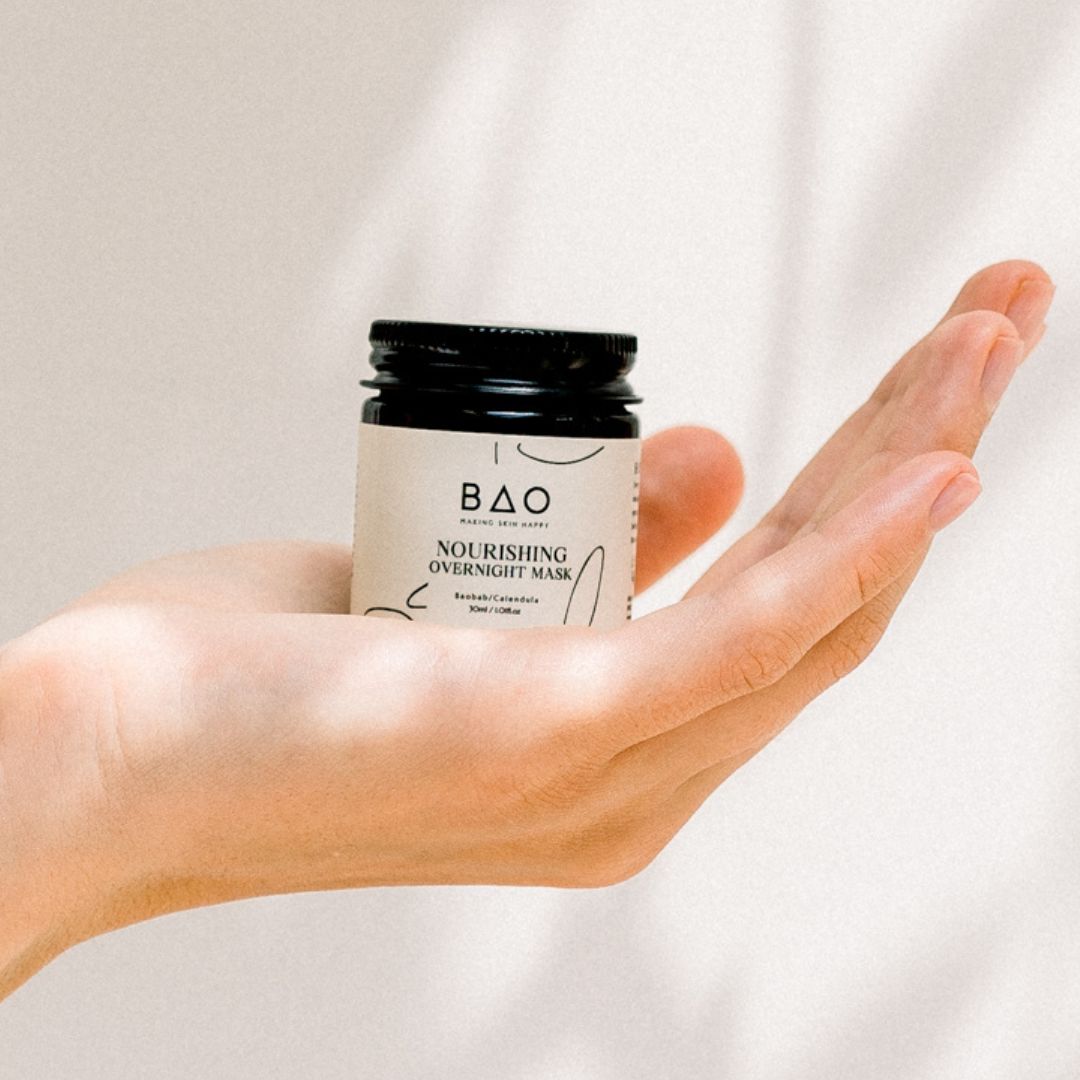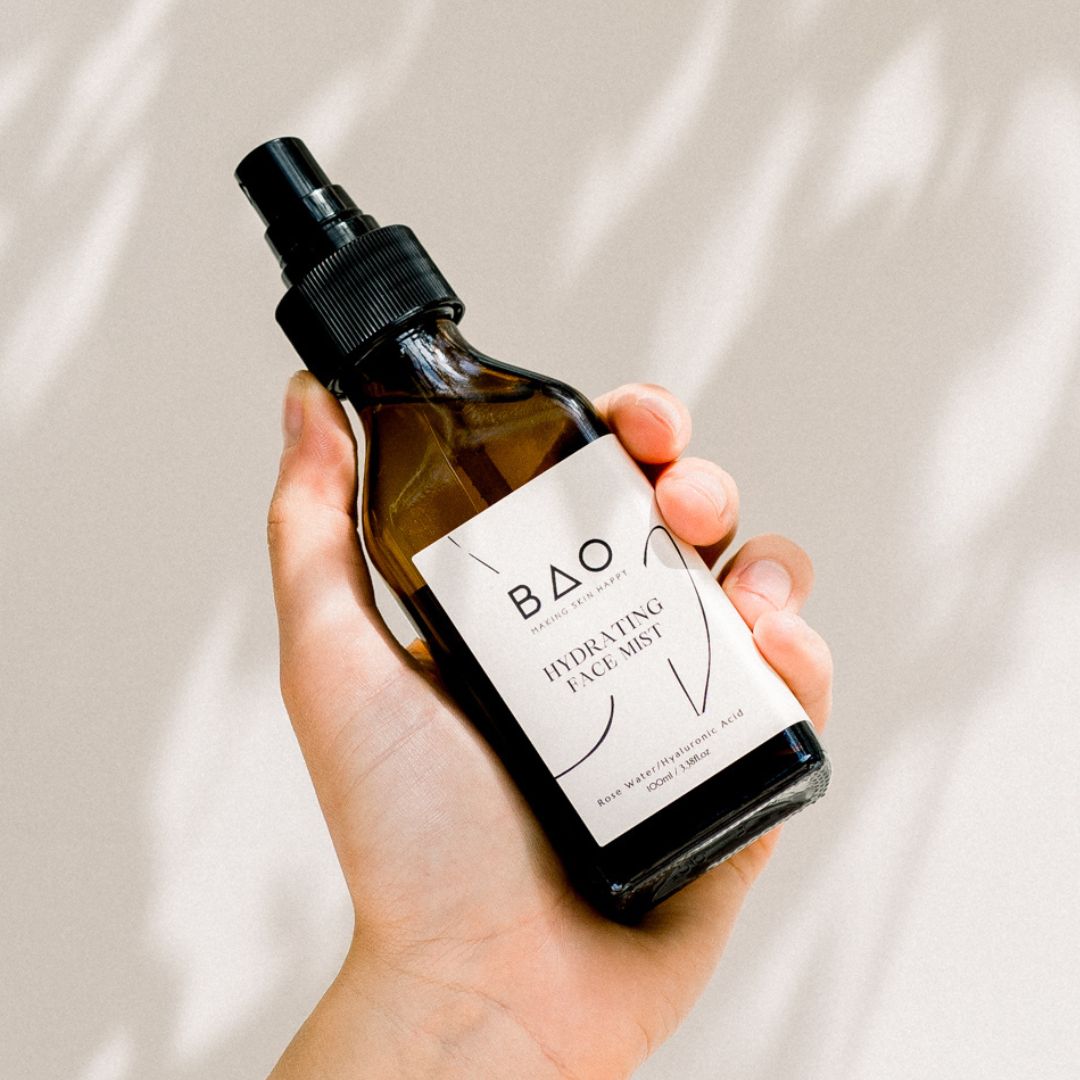If you have sensitive skin it can be a struggle to find the right skin care products for you.
If sensitivity is your main concern, you’ve come to the right place, as this is why I created BAO Skincare!
Reactive skin symptoms
Extra special care is essential, since sensitive skin gets irritated and inflamed very easily. Red patches, itchiness, tingling and spots are common problems with sensitive skin.
This fragile skin type should only be exposed to skincare products that are selected with great care.
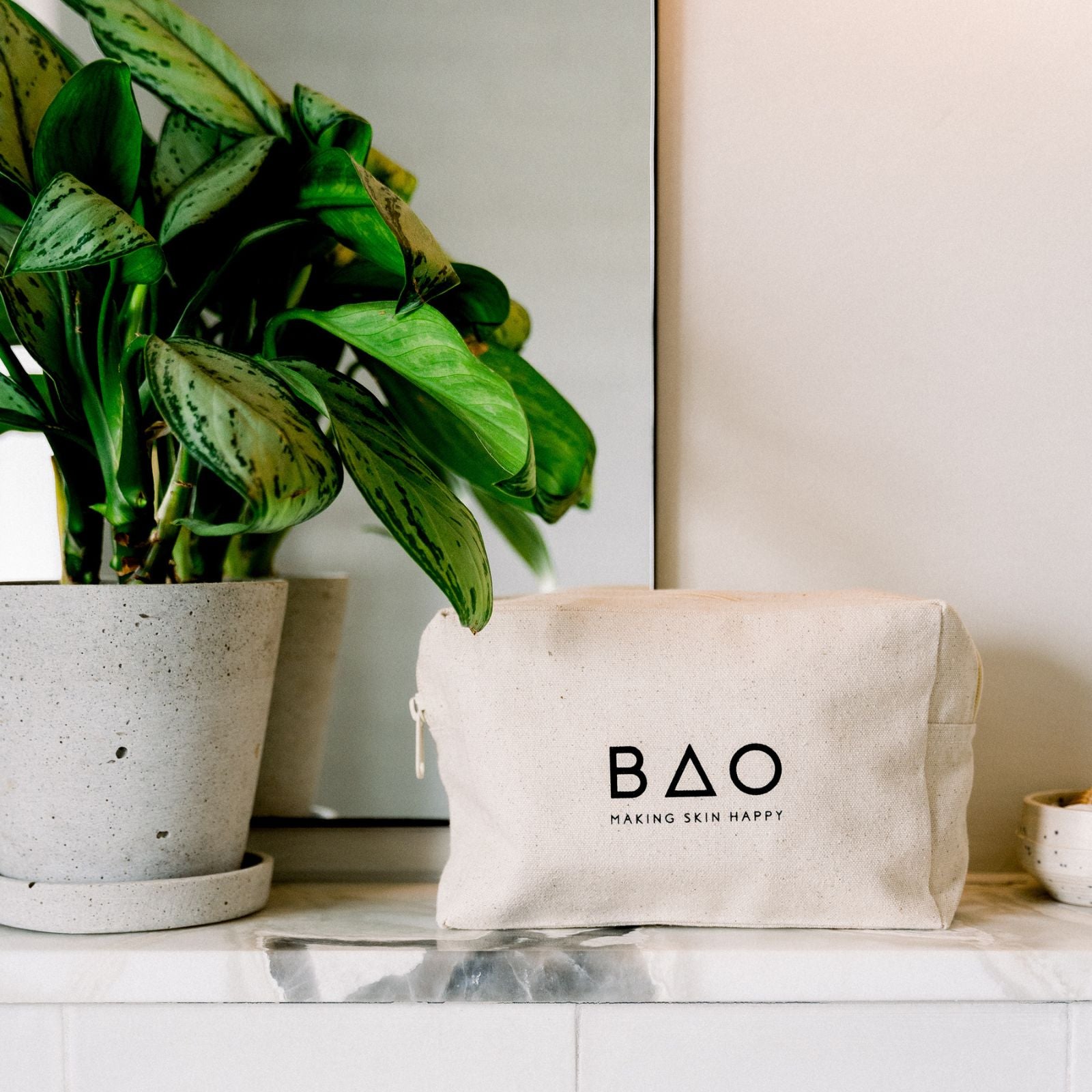
When ordinary skincare doesn't cut it
You may well find ordinary skincare without official fragrances cause itching and redness.
Your skin needs products that hydrate, protect, soothe, restore and balance whilst being pure and gentle to reduce irritation.
This is why the BAO collection of certified organic sensitive skin care products contains non irritating ingredients proven to restore your skin's natural balance and balm any sensitivity.
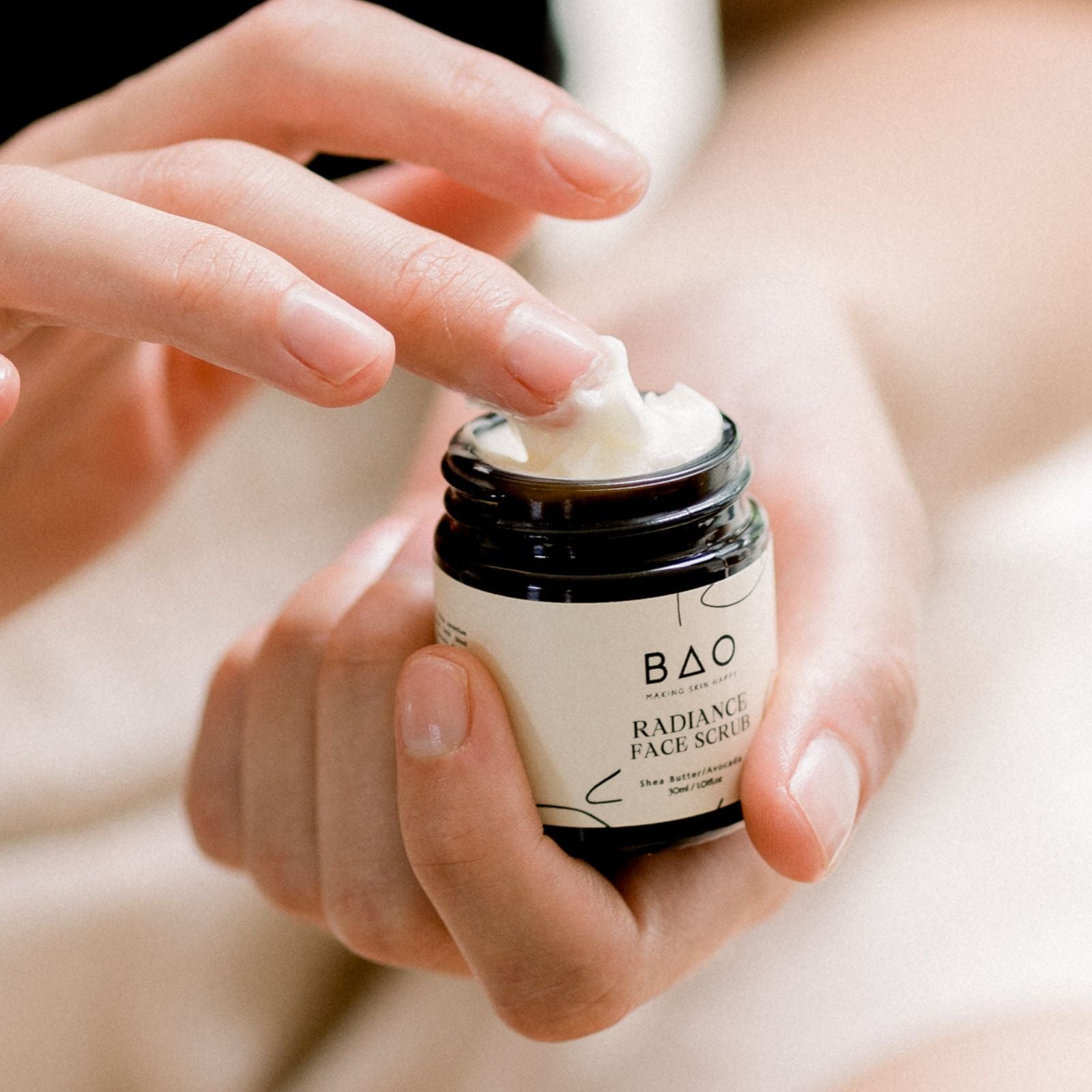
Exfoliate gently!
Retinol, alpha hydroxy acids (glycolic, lactic, mandelic acids, etc.), proteolytic enzymes and other exfoliating ingredients should be avoided until the skin is no longer showing reactive skin symptoms.
These exfoliating chemicals are helpful ingredients for many conditions, but their overuse or use in too high of a concentration or with too low of a pH, can wreak havoc on the epidermal lipid barrier.
Try switching to Radiance Face Scrub which is super creamy and gentle but still leaves skin bright and fresh looking.
YOUR REACTIVE SKIN HEROES
Nourish it. Care for it. Feed it.
Food can definitely have an impact on reactive sensitised skin. If someone has a food intolerance, IgG antibodies will be released which will increase inflammation in the body and as a result exacerbate skin conditions such as eczema and psoriasis. In addition to this, there are foods that increase inflammation in the body when metabolised. Inflammation will increase the sensitivity in the skin and make the skin appear red and irritated.
As with other skin types, incorporate plenty of antioxidant-rich fruits and vegetables, whole grains, nuts, seeds and essential fatty acids.
Vitamin E-rich olive oil is ideal for improving your hydration-levels (dehydration can increase sensitivity) and also fights free radicals to reduce inflammation. It is best consumed virgin, pressed and unheated, to preserve its anti-inflammatory properties. Omega-3 fatty acids, found in oily fish and seed oils (like flaxseed) will also help to reduce sensitivity and inflammation. Avoiding alcohol. nightshades (peppers, aubergine and tomatoes) and reducing your sugar intake will be very beneficial for calming any redness and inflammation.

7 foods that can irritate skin
read more